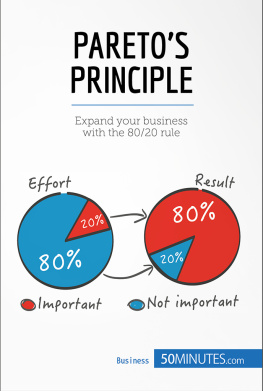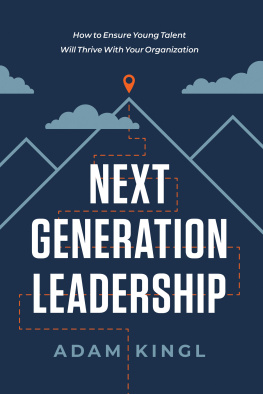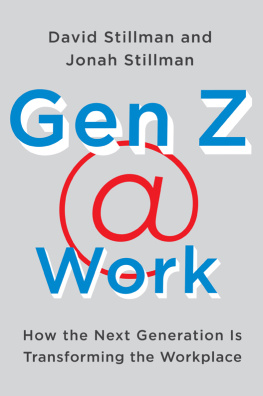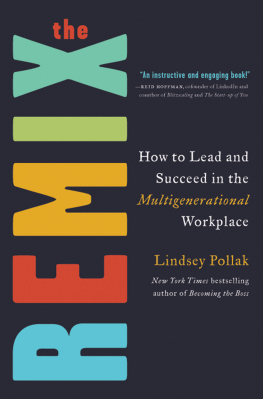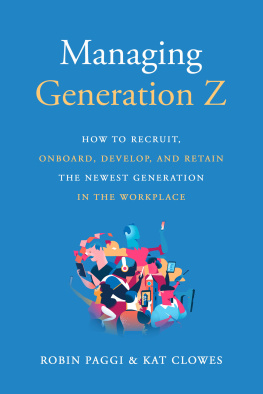Generation Y in business: whats changed?
- Issue: what changes do Generation Y bring to organisations and professional relationships? How can we resolve this intergenerational issue?
- Uses: defining the challenges and optimising intergenerational relationships so as to establish a calm and productive working environment.
- Professional context: professional relationships, team management, intergenerational management.
- FAQs:
- What are the characteristics of Generation Y?
- What can I do right now to improve intergenerational relationships in my organisation?
- How should I react if an intergenerational conflict breaks out in the middle of a meeting?
- Should I manage generations differently?
- Does an organisation transform when it comes into contact with Generation Y?
For several years, Generation Y has been increasingly present within organisations, reviving the issue of intergenerational conflict, which returns every 25 years or so with the arrival of a new generation. This cyclic demographic phenomenon is unfortunately never problem-free and, as no company can permanently deal with conflictual human relationships, it is important to take the specifics of each group into account in order to establish a balance. We can now look at the cultural gaps between different generations, which sometimes stop them from working together in harmony. They do not always have the same moral vision, the same understanding of hierarchy or even the same results-focused culture. Indeed, these generations have received different educations depending on the era in which they were born. Their social context and life journeys are different, as the world has evolved over the decades. Business does not escape these issues, as working relationships are also affected.
Currently, reactivity and flexibility are essential qualities for an organisation. Their direct competitors are no longer only situated within their area, city or country, but across the entire world. They must permanently adapt by producing better, cheaper products. In this environment where competitivity prevails, 25-year-olds work in close collaboration with colleagues who are 30 years older. This type of situation does not occur without causing interpersonal problems that must be dealt with constructively. Communication can sometimes prove to be very complicated between generations, as their experiences and cultural references are sometimes diametrically opposed.
In 50 minutes, you can learn from the reflections and practical advice provided in this little guide. It is aimed at all those who are progressing in business: the manager and the HR director, but also employees of all generations. We are taking up the challenge of guiding in this meaningful yet difficult task, namely and reducing intergenerational divides.
Generation Y in the working world: the basics
The different generations
Currently, several generations work together in organisations: baby-boomers (born 1945-1960), Generation X (born 1960-1980) and those that followed, logically named Generation Y or the Digital Natives (born 1980-2000). Generation Z is also slowly beginning to appear in working life. Making these four generations work together is a real challenge that organisations must be able to resolve.

Generation Y or Generation Internet
We can start by better understanding Generation Y. Learning to decode them in order to get to know them better, without reading too much into their habits or attitudes, is the winning strategy.
On a tram, a young girl checks her emails on her tablet while listening to music. As simple as it may be, this image of a contemporary young person says a lot. Indeed, this generation symbolises a new approach to ICT (information and communication technologies) with a more playful use of this culture, increasingly likened to fun. The variety of media supports and interconnectivity of devices have further accentuated this trend: mobile phones take photographs and receive emails, and computers download music and images immediately. This technical evolution has amplified the demand for everything, right now, characterised by the culture of zapping (which refers to a zapper, or television remote control that allows you to change the television channel from a distance). Furthermore, the term surfer on the internet reveals the superficiality of intent and the immediacy of desire.
Generation Y is the generation that has taken ownership of mobile objects that enable them to work by being permanently connected, thus giving rise to a new approach to time. Work, entertainment, family life and daily tasks are more interlinked than ever before. The preceding generations were not, however, strangers to the changes that have arisen over the years. While many employees from the previous generation have managed to adapt to ICT in their companies, many others have fallen significantly behind in mastering these new electronic processes. The intergenerational divide is a reality that generates frustration and misunderstanding: it is at the root of many conflicts and dysfunctions within teams in companies. This gap appeared without warning through the replacement of middle managers who, in their daily lives, are used to the tools that are increasingly used at work (smartphones or tablets that have the same kind of language as computers).
An evolution of professional behaviour
Beyond their affinity for computing, Generation Y has a different relationship with work and organisation:
- Questioning of authority. As well as the consequences of the current technological revolution on behaviour, those born after the social upheaval of the 1960s have a different relationship with authority and work than previous generations. Human relationships within the organisation have evolved, although this is still mainly organised hierarchically. Generation Y brings together the children of those who have learnt to question the authority of adults and the hierarchy. As a consequence, some behaviours, such as external signs of respect (politeness), have seen a shift, although they have fortunately not disappeared completely.
- Work-life balance. For this generation, work does not hold the same place that it did for their parents. Family life, friendships and leisure are as fundamental for them as their job. Personal life sometimes even comes before working life. Many young people take a break in their career or a gap year, when their working life is only just beginning. In their search for coherence and meaning, they do not see work as an end in itself, but rather as one instrument among many to thrive.
- The importance of the working environment. The atmosphere, the building, smoking areas and even the enjoyment of their commute have become priorities for this generation.
- A less unionised and politicised generation. Although this generation is not disinterested in work nor its political environment, it sometimes gives this impression to older generations. Members of Generation Y do not feel very concerned and also have little representation at this level.







